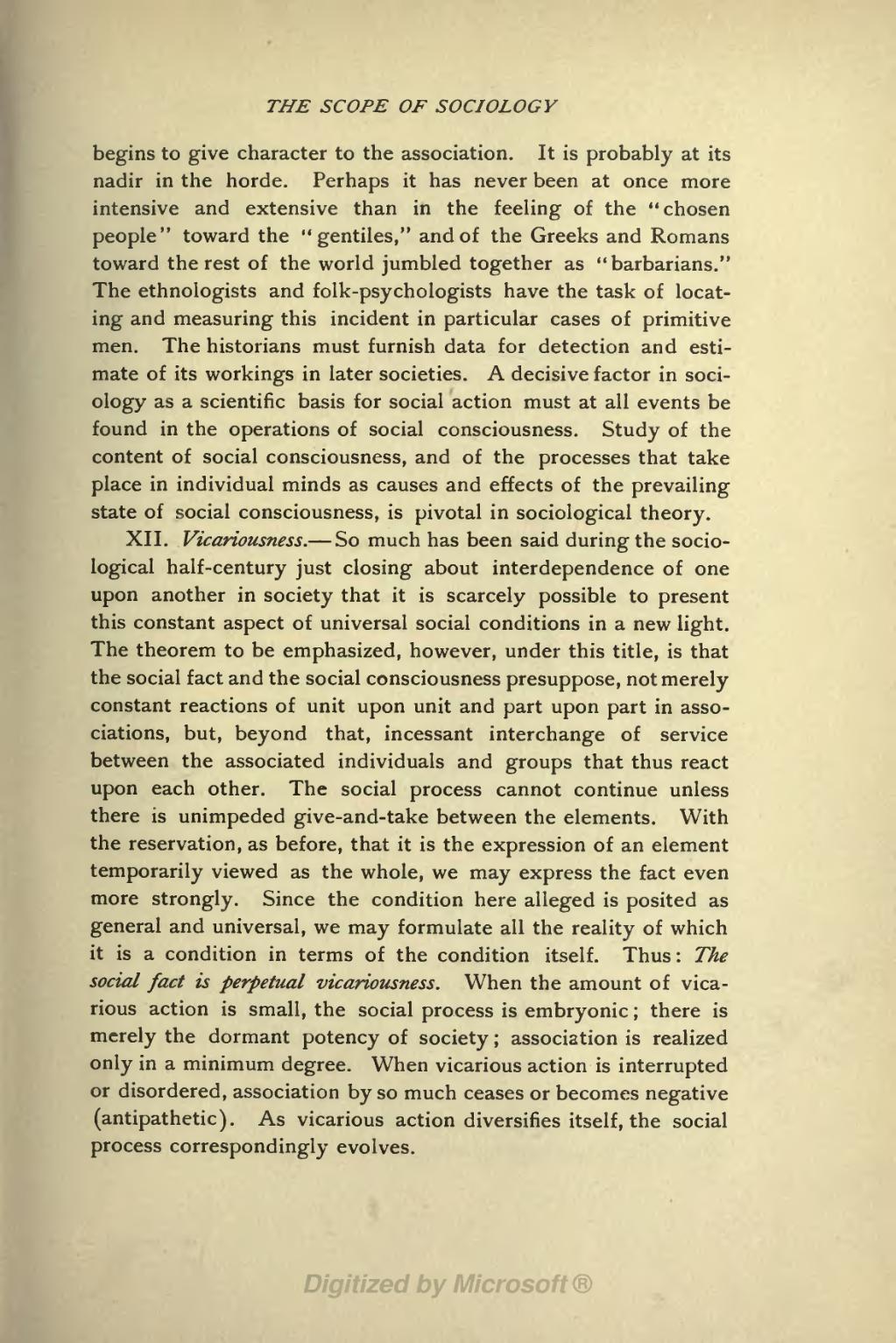THE SCOPE OF SOCIOLOGY
begins to give character to the association. It is probably at its nadir in the horde. Perhaps it has never been at once more intensive and extensive than in the feeling of the "chosen people" toward the "gentiles," and of the Greeks and Romans toward the rest of the world jumbled together as "barbarians." The ethnologists and folk-psychologists have the task of locat- ing and measuring this incident in particular cases of primitive men. The historians must furnish data for detection and esti- mate of its workings in later societies. A decisive factor in soci- ology as a scientific basis for social action must at all events be found in the operations of social consciousness. Study of the content of social consciousness, and of the processes that take place in individual minds as causes and effects of the prevailing state of social consciousness, is pivotal in sociological theory.
XII. Vicariousness. So much has been said during the socio- logical half-century just closing about interdependence of one upon another in society that it is scarcely possible to present this constant aspect of universal social conditions in a new light. The theorem to be emphasized, however, under this title, is that the social fact and the social consciousness presuppose, not merely constant reactions of unit upon unit and part upon part in asso- ciations, but, beyond that, incessant interchange of service between the associated individuals and groups that thus react upon each other. The social process cannot continue unless there is unimpeded give-and-take between the elements. With the reservation, as before, that it is the expression of an element temporarily viewed as the whole, we may express the fact even more strongly. Since the condition here alleged is posited as general and universal, we may formulate all the reality of which it is a condition in terms of the condition itself. Thus : The social fact is perpetual vicariousness. When the amount of vica- rious action is small, the social process is embryonic ; there is merely the dormant potency of society ; association is realized only in a minimum degree. When vicarious action is interrupted or disordered, association by so much ceases or becomes negative (antipathetic). As vicarious action diversifies itself, the social process correspondingly evolves.
